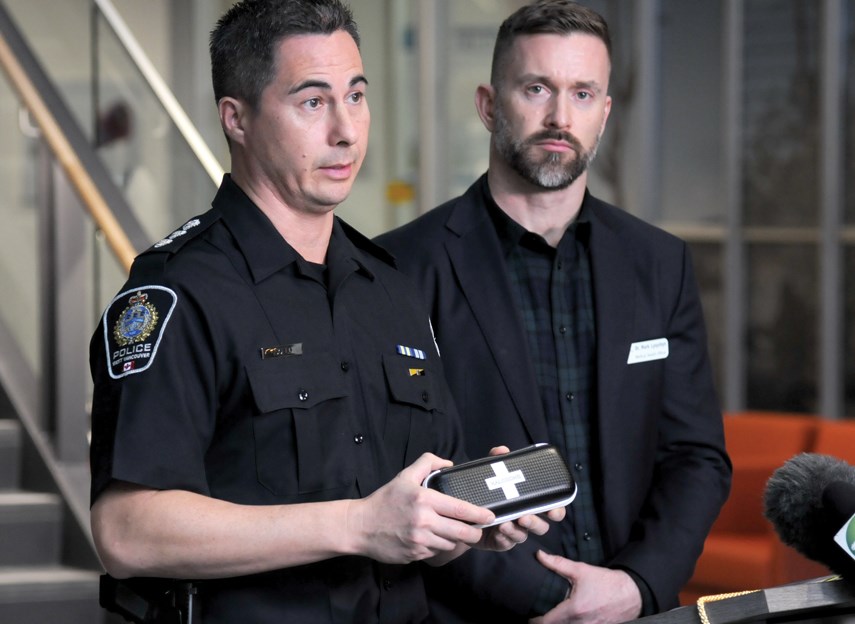People suffering from addiction who find themselves in a West Vancouver jail cell will no longer just receive a court date when they’re released. They’re also now being given some tools that could save their lives and get them on the road to recovery.
Since the start of the month, West Vancouver police have been issuing take-home naloxone kits and referrals to Vancouver Coastal Health’s addiction outreach workers to anyone released from custody who may benefit.
“It just occurred to us a lot of times we have people in custody and they have some drug addiction issues and we have some time to spend with them. If there’s a chance for us to have that conversation, then we’ll do that,” said West Vancouver Police Department Insp. John Lo. “It’s been a bit of a shift for us, too. Instead of just focusing on the enforcement side of what we’re doing, we’re focusing on the treatment side ... . Instead of just forwarding charges about that individual, we’re opening up a conversation with that individual, trying to get them on the right path to recovery.”
Lo said police don’t track statistics on the number of people arrested who are also addicted but it high percentage of people brought in for property crimes like break-ins or the thefts from autos.
The officers will also offer training on how to use the overdose-reversing injection kits before someone in custody is released.
Dr. Mark Lysyshyn, medical health officer for the North Shore, said Vancouver Coastal Health was quick to support the new program.
“We think it’s great that police are embracing this harm reduction approach. It is new for some forces,” he said.
Because they’ve been off the street and away from their drugs, people released from custody are at high risk of overdoses and research shows take-home Naloxone kits save lives, Lysyshyn said.
Even more powerful is guiding people towards treatment, though, Lysyshyn added, the wider community will also benefit from the program because people undergoing treatment are less likely to return to crime.
“This interaction with the police officer is a potentially real moment where they realize somebody cares about them, and they can get on treatment,” he said. “Addiction is a disease where motivation can be impaired. Our health-care system tends to rely on people’s motivation to seek treatment. Sometimes we need to help them.”



